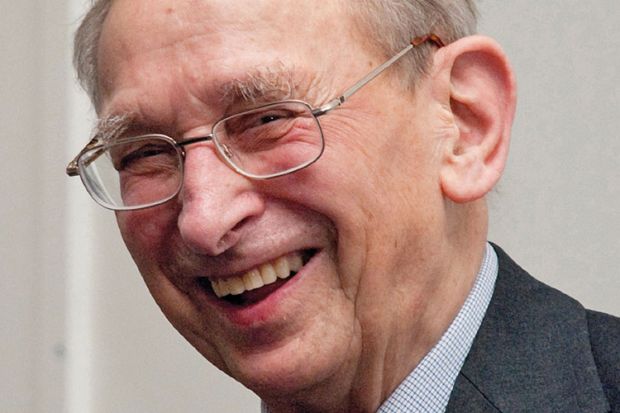Geoffrey Michael Lilley was born in Middlesex on 16 November 1919 and attended Isleworth County School.
At the age of 15, he was apprenticed to the Royal Air Force but moved on in 1936 to become a general engineering apprentice at Kodak and then, in 1938, assistant to the chief engineer, responsible for designing the air conditioning system. Two years later, he joined manufacturer Vickers-Armstrongs, where he worked on both aircraft and high-speed bombs.
It was at this stage that Professor Lilley got a chance to make up for his lack of formal qualifications by studying for his higher national certificate followed by a BSc and an MSc in engineering and a diploma from Imperial College. But he was not allowed to proceed to a PhD because he had to make up the time he had taken off work (while also serving with a Home Guard anti-aircraft battery two evenings a week).
After leaving Vickers-Armstrongs in 1946, Professor Lilley became one of the founding academics at the postgraduate College of Aeronautics (Cranfield), where he was promoted to professor of experimental fluid mechanics in 1961.
He fitted out a state-of-the-art aeronautics laboratory and, often working with industrial partners, produced major research on jet noise reduction, re-entry issues for manned spacecraft and the sonic boom produced by aircraft that have broken the sound barrier. His work with the Supersonic Transport Aircraft Committee, convened by the Ministry of Supply in 1956, played a key role in the development of Concorde.
In 1964, Professor Lilley became head of the department of aeronautics and astronautics at the University of Southampton, where he was able to build on his long connections with the Royal Aircraft Establishment at Farnborough.
This enabled the university to obtain a vast wind tunnel, which has been used extensively by Formula 1 teams to test cars. Professor Lilley studied how motorway visibility was affected by the spray produced by heavy lorries and put forward suggestions to combat this, which were adopted by the Ministry of Transport. And he pursued a long-standing interest in the silent flight of the owl and whether this ability could be adapted to noise-reduction initiatives in commercial aircraft.
Although Professor Lilley retired from Southampton in 1983, he took on visiting professorships in South Africa and Turkey, and a more permanent role at Nasa’s Institute for Computer Applications in Science and Engineering (Icase).
He died on 20 September and is survived by three children.
Register to continue
Why register?
- Registration is free and only takes a moment
- Once registered, you can read 3 articles a month
- Sign up for our newsletter
Subscribe
Or subscribe for unlimited access to:
- Unlimited access to news, views, insights & reviews
- Digital editions
- Digital access to THE’s university and college rankings analysis
Already registered or a current subscriber?





